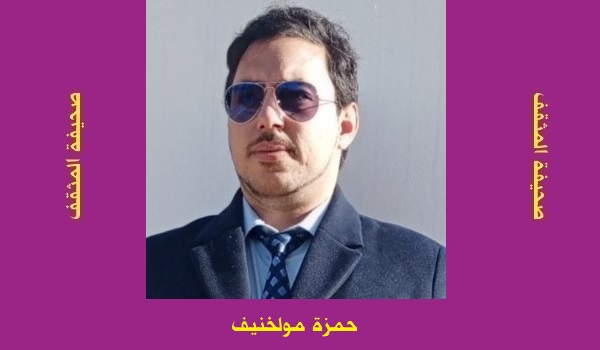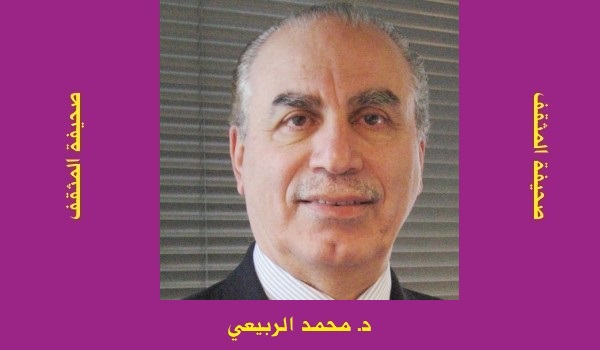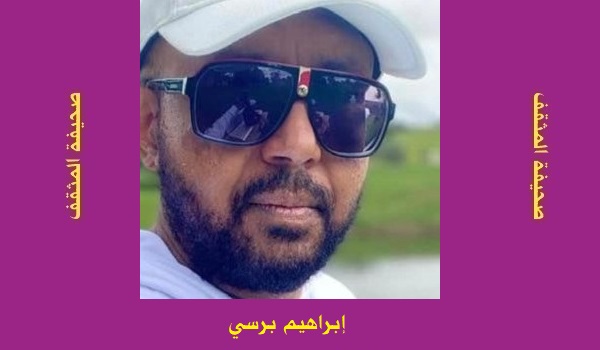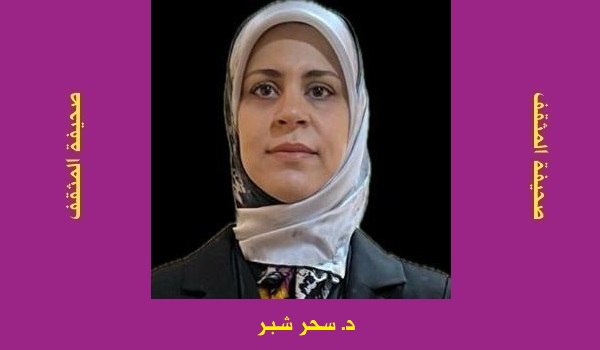قضايا
عبد الجليل البدري: الكومنتاريا العراقية.. من التنظير إلى التحقق الواقعي
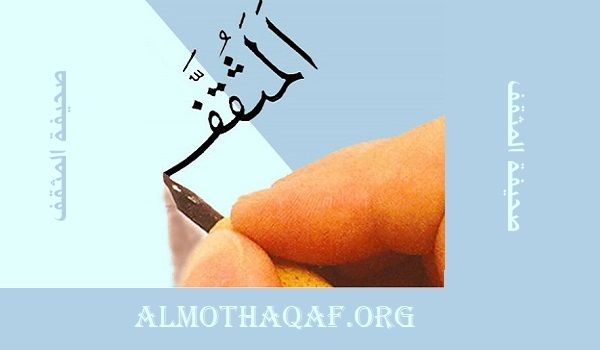
ورقة مكملة لمقال إبراهيم برسي "من البروليتاريا إلى الكومنتاريا"1
تمهيد: في مقاله التحليلي، يُعيد الأستاذ إبراهيم برسي تعريف الطبقات المنتجة في المجتمع، منتقلاً من البروليتاريا الصناعية إلى "الكومنتاريا" المعرفية. هذه الطبقة الجديدة لا تعتمد على الجهد البدني أو الآلة، بل تُنتج التأثير عبر المعرفة، المنصات الرقمية، والخوارزميات. ورغم أن هذا التصور يبدو حديثاً في بنيته النظرية، إلا أن الواقع العراقي يُقدّم شواهد حية تُسنده، وتُثبت أن هذا التحول ليس مجرد فكرة، بل مسار حضاري يتشكل فعلياً في مؤسساتنا التعليمية، التقنية، والمجتمعية.
تصورات برسي: إعادة تعريف أدوات الصراع
يرى برسي أن أدوات الإنتاج لم تعد المطرقة والآلة، بل العقل والخوارزمية. ويُشير إلى أن الكومنتاريا تُنتج التأثير عبر المحتوى الرقمي، البرمجيات، والتعليم التفاعلي، وتُعيد تشكيل الوعي العام من الهامش، رغم أنها لا تحظى دائماً باعتراف مؤسسي مباشر. هذا التحول يُعيد تعريف العلاقة بين الفرد والمجتمع، ويُحوّل المثقف من ناقل إلى منتج للسياسة العامة.
أمثلة عراقية تُسند التصور وتُثبت تحققه
في العراق، تتجلى ملامح الكومنتاريا في عدة مجالات. ففي التعليم الرقمي، ظهرت منصات محلية مثل "نفهم العراق"، إلى جانب مبادرات جامعية تُقدّم محتوى ثنائي اللغة، مما يُعيد تشكيل دور المعلم من ناقل للمعرفة إلى منتج رقمي ومُيسّر تفاعلي. هذه النماذج تُجسد الكومنتاريا التعليمية التي تُنتج المعرفة وتُعيد تعريف العملية التربوية.
أما في مجال الطاقة المستدامة، فقد برزت مشاريع للطاقة الشمسية يقودها أكاديميون في محافظات مثل البصرة والأنبار، تُقدّم حلولاً محلية قابلة للتطبيق، وتُعيد ربط الجامعة بالمجتمع. هذه المبادرات تُجسد الكومنتاريا التقنية التي تُنتج المعرفة التطبيقية وتُسهم في الاستقلال الطاقي.
وفي المجتمع المدني، ظهرت مبادرات مثل "شبكة شباب العراق" و"مركز تمكين"، التي تستخدم الإعلام الرقمي لتدريب الشباب على القيادة، التفكير النقدي، والابتكار. هذه النماذج تُعيد تشكيل الوعي الاجتماعي، وتُجسد الكومنتاريا المدنية التي تُنتج خطاباً مجتمعياً جديداً.
أما في المجال الفكري، فقد ساهم كتّاب ومفكرون عراقيون عبر منصات مثل "المثقف" و"الحوار المتمدن" في إعادة تعريف الخطاب العام، من خلال إنتاج محتوى نقدي وتحليلي يُسهم في إصلاح الوعي الجمعي. هؤلاء يُمثلون الكومنتاريا الفكرية التي تُعيد تشكيل الثقافة السياسية والاجتماعية.
وفي قلب هذا التحول، يبرز دور البروفيسور محمد الربيعي، أحد أبرز رواد إصلاح التعليم العالي في العراق. على مدى أكثر من عشرين عاماً، قدّم دراسات ومقالات ومقترحات لتحديث المناهج، اعتماد الجودة، وتطوير البحث العلمي بما يتماشى مع المعايير العالمية. كتاباته المنتظمة تُعد نموذجاً للكومنتاريا الأكاديمية التي تُنتج خطاباً إصلاحياً مؤثراً، وتُسهم في تشكيل السياسات التعليمية. يُجسد الربيعي نموذج "المثقف المنتج للسياسة العامة"، وهو ما يتقاطع تماماً مع تصور برسي للكومنتاريا كطبقة فاعلة في إعادة تشكيل المجتمع.
مقارنة تحليلية بين البروليتاريا والكومنتاريا
الفرق بين البروليتاريا والكومنتاريا يتجلى في أدوات الإنتاج، مكان العمل، وسائل التأثير، ومصدر القيمة. فالبروليتاريا تعتمد على اليد العاملة والآلة، وتعمل في المصانع والورش، وتُؤثر عبر الإضرابات والاعتصامات، بينما تعتمد الكومنتاريا على العقل والخوارزمية، وتعمل عبر الحاسوب والمنصات الرقمية، وتُؤثر من خلال المحتوى والبرمجيات. مصدر القيمة لدى البروليتاريا هو الجهد البدني، بينما لدى الكومنتاريا هو المعرفة والابتكار. التهديدات التي تواجه البروليتاريا تشمل البطالة واستبدالها بالآلة، أما الكومنتاريا فتواجه التهميش الرقمي واحتكار المعرفة. ومع ذلك، فإن فرص البروليتاريا تكمن في تحسين الأجور، بينما فرص الكومنتاريا تكمن في إصلاح التعليم وتمكين المجتمع.
توصيات مستقبلية
- أولاً، من الضروري توسيع المفهوم نظرياً، عبر تطوير إطار مقارن بين الكومنتاريا العراقية ونظيراتها في العالم، وربطها بمفاهيم اقتصاد المعرفة والذكاء الاصطناعي.
- ثانياً، يجب توثيق النماذج المحلية، مثل تجربة البروفيسور محمد الربيعي، لتكون مرجعاً في إصلاح التعليم العالي في العالم العربي.
- ثالثاً، يُستحسن فتح حوار أكاديمي بين الباحثين العراقيين لتوسيع هذا المفهوم، وربطه بالسياسات التعليمية والبحثية.
رابعاً، يُوصى بإعداد نسخة إنجليزية من هذه الورقة، تُبرز العراق كمصدر لنماذج معرفية محلية قابلة للتعميم دولياً
***
إعداد: الدكتور عبد الجليل البدري
....................
للاطلاع
إبراهيم برسي: من البروليتاريا إلى الكومنتاريا.. الثورة التي غيّرت أدواتها
.........................
The Iraqi Commentariat: From Theory to Tangible Transformation
A Complementary Paper to Ibrahim Barssi’s “From Proletariat to Commentariat”
Prepared by Dr. Abduljalil Al-Badri
Introduction
In his analytical essay, Ibrahim Barssi redefines the productive classes of society by shifting the focus from the industrial proletariat to the emerging “commentariat”—a knowledge-based class that exerts influence through digital platforms, algorithms, and intellectual production. While this framework may appear novel, Iraq offers compelling real-world evidence that supports and enriches Barssi’s thesis. Across education, energy, civil society, and public discourse, a new class of knowledge producers is actively reshaping the country’s trajectory.
Barssi’s Vision: Reframing Tools of Social Struggle
Barssi argues that the tools of production have shifted from hammers and machines to minds and algorithms. The commentariat influences society through content creation, digital platforms, and educational reform. Though often marginalized institutionally, this class holds central influence in shaping public awareness and policy. It redefines the relationship between individuals and institutions, transforming the role of the intellectual from a passive transmitter to an active producer of public policy.
Iraqi Evidence Supporting the Commentariat Framework
In Iraq, the commentariat is emerging across multiple sectors. In digital education, platforms such as “Nafham Iraq” and bilingual university initiatives have redefined the role of the educator. Teachers are no longer mere conveyors of information—they are digital facilitators and content creators. These models exemplify the educational commentariat, which produces accessible knowledge and reshapes pedagogical norms.
In the field of sustainable energy, academic-led solar projects in provinces like Basra and Anbar offer locally grounded solutions and reconnect universities with community needs. These initiatives represent the technical commentariat, generating applied knowledge and contributing to national energy independence.
Civil society has also witnessed the rise of digital initiatives such as the Iraqi Youth Network and Tamkeen Center, which empower young people through leadership training, critical thinking, and innovation. These efforts reflect the civic commentariat, which reshapes social consciousness through digital literacy and participatory engagement.
In intellectual discourse, Iraqi writers, and thinkers on platforms like Al-Mothaqaf and Al-Hewar Al-Mutamaddin have contributed to redefining public narratives. Their analytical and reform-oriented content exemplifies the intellectual commentariat, which influences cultural and political reform through sustained dialogue.
At the heart of this transformation stands Professor Mohammed Al-Rubaie, one of Iraq’s most distinguished pioneers in higher education reform. For over two decades, he has produced studies, proposals, and public writings aimed at modernizing curricula, promoting academic quality, and aligning Iraqi universities with global standards. His consistent engagement with both academic and public audiences makes him a living embodiment of the academic commentariat. Al-Rubaie exemplifies the “public intellectual as policy architect,” perfectly aligned with Barssi’s vision of the commentariat as a transformative force in society.
Analytical Comparison: From Proletariat to Commentariat
The shift from proletariat to commentariat is evident in several dimensions. The proletariat relies on manual labor and machinery, working in factories and workshops, and influencing society through strikes and protests. In contrast, the commentariat operates through intellect and algorithms, using laptops and digital platforms to shape discourse and policy. While the proletariat’s value stems from physical effort, the commentariat derives its influence from knowledge and innovation. The former faces threats like unemployment and automation, while the latter contends with digital exclusion and monopolization of information. Yet, the opportunities for the commentariat are profound ranging from educational reform to civic empowerment and strategic development.
Strategic Recommendations
To advance this framework, several steps will be for future discussion:
1. Theoretical Expansion: Develop comparative models between Iraq’s commentariat and global counterparts, integrating concepts from the knowledge economy and artificial intelligence.
2. Documentation of Local Models: Highlight and archive successful Iraqi examples—especially the work of Professor Mohammed Al-Rubaie—as case studies in sustainable reform.
3. Academic Dialogue: Foster collaborative research among Iraqi scholars to refine and expand the commentariat concept, linking it to national education and innovation policies.
4. International Dissemination: Translate and publish these insights to position Iraq as a contributor to global knowledge economies and reform strategies.
